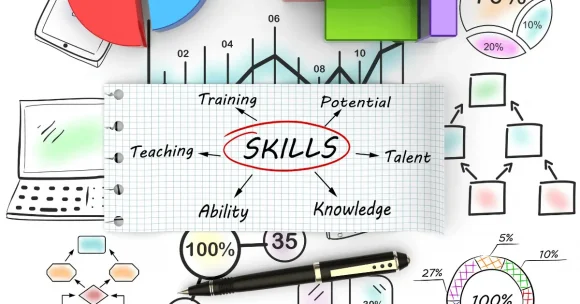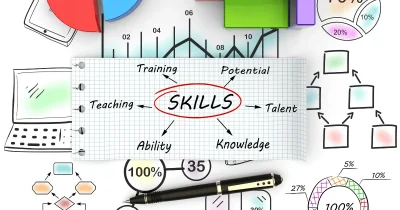Companies are facing an urgent need to transition to a green economy as the world edges closer to critical environmental thresholds. The race to equip the global workforce with green skills is on, but many workers are falling behind.
Shockingly, only one in eight workers globally have one (or more) green skills. LinkedIn’s 2023 Global Green Skills report sheds light on a growing yet insufficient shift towards a sustainable future. LinkedIn surveyed more than 940 million users for this report.
Are we adapting fast enough, or is the gap between necessity and reality widening?
Green skills versus skills gap
While seven in eight workers don’t possess green skills, the share of job postings requiring at least one green skill grew by 22% in 2023. For every 100 workers who left the global renewable energy sector, 120 workers joined.
This growth is notable across all industries, with the biggest impacts in three specific sectors:
- Energy production.
- Transportation.
- Finance.
This may mean more job openings for those who have the right skills. It also means those without these skills could face increasing challenges when looking for employment.
The green lining: In 81% of transitions to sustainability-focused jobs, workers have already gained some combination of green skills or prior ‘green job’ experience.
The future is energy, transport, and finance
While the push for environmental consciousness extends to all sectors, three stand apart. Energy production, transportation, and finance are seeing significant growth in green skills development and integration.
Energy production sector:
Since energy production is the largest source of greenhouse gas emissions, the sector has more stringent demands as it pushes for renewable sources like solar and wind.
The green lining: More people are joining the industry than leaving it, especially in Australia and the United Arab Emirates where workers are gravitating towards the fossil fuel industry.
In the US, UK, Germany, Singapore, and France, the workforce is dwindling, but this trend is also decelerating. This trend reinforces the need for countries to double down on strategies for reducing fossil fuel-derived emissions.
Transportation
Transportation is the second largest source of greenhouse gas emissions but the global demand for electric vehicles (EVs) might be its saving grace. According to the International Energy Agency (IEA), there were 16.5 million EVs worldwide, as of 2022.
The report states: “Automotive industry workers are increasingly adding relevant green skills to their LinkedIn profiles — and the industry is hiring larger shares of workers who are equipped with these skills.”
The green lining: EV-adjacent industries are also seeking out the skills of workers in the transportation sector. In the US, these include jobs related to the utilities and electric power transmission sector.
Finance
As per the report, Finance is a “critical enabler” but still lags far behind. “Given the importance of having the financial tools to implement proven solutions, we need the financial sector to be among the most green. Our data shows that is far from the case.”
While one in eight people globally have green skills (a median of 12.3%), it’s even lower for the finance sector, with a 6.8% median. That means only one in 15 finance workers have green skills.
The green lining: “Workers in the US and Europe are quickly acquiring a set of skills at the intersection of finance and sustainability.
Fastest growing green skills in this sector:
- Carbon credits.
- Emissions trading.
- Carbon accounting.
- Impact assessment.
- Sustainability reporting.
Closing the green skills gap
In short, collaboration is needed across public and private sectors to foster skill development.
Beyond skills acquisition, businesses must aim to do existing jobs in more sustainable ways.
The researchers say: “Workforce data […] offers critical insight for policymakers intent on developing a green talent pipeline. As our analysis demonstrates, the growth in demand for green skills is already outpacing growth in the supply of green talent.”
About the author
Cheryl has contributed to various international publications, with a fervor for data and technology. She explores the intersection of emerging tech trends with logistics, focusing on how digital innovations are reshaping industries on a global scale. When she's not dissecting the latest developments in AI-driven innovation and digital solutions, Cheryl can be found gaming, kickboxing, or navigating the novel niches of consumer gadgetry.











